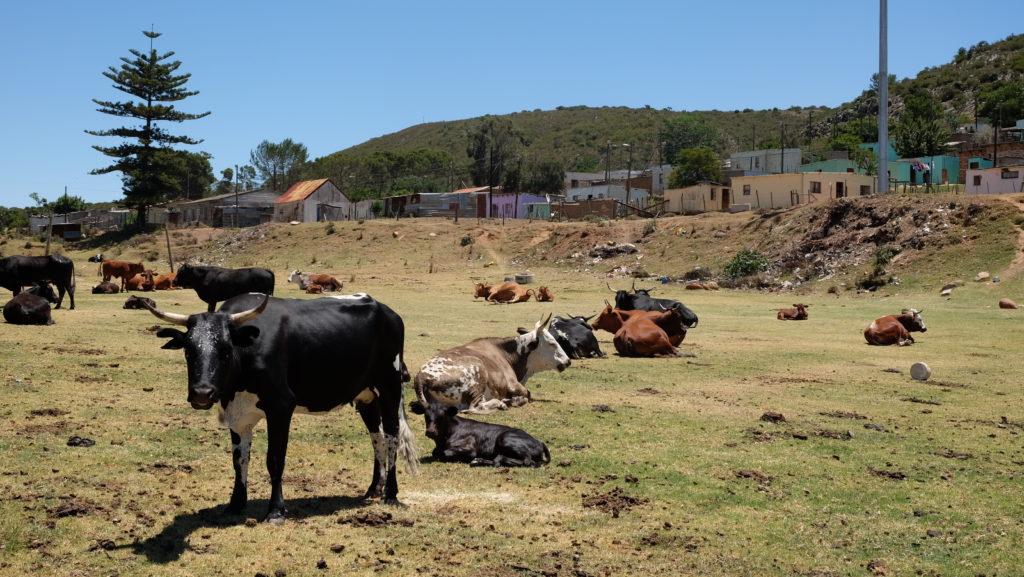
“It’s one thing when you can’t help yourself, but how can you deny an animal water,” said a tearful chicken farmer in Riebeeck East.
Temperatures soared to 42 degrees Monday afternoon, red tinged dust swirled in the dry air as local farmers watched over their livestock. With the veld failing to provide food for animals, farmers have had no choice but to buy lucerne and other supplements. “The food is no problem”, said a sheep farmer, “it’s the water that’s the issue”.
The two farmers, who requested to be anonymous, are neighbours in Riebeeck East. Despite sharing a laugh about the abundance of beer over water, the farmers fear for the lives of their precious animals. Unable to use the veld, the sheep farmer spends roughly R2 000 a month on lucerne and pellets for his 22 sheep. Two of his herd were quite curious about the Grocott’s Mail team, baa-ing and bleating their comments. Sadly our sheep translator was not available; but from what we could guess, Sharapova and Bambi wanted water just as much as the farmers.
“Animals are purely dependent on the farmer,” said Dr Luca Mendes, Director of Ikhala Veterinary Clinic in Makhanda (Grahamstown). Mendes stated that animals need between five and 10 percent of their body weight in water per day. “For a 400kg cow, you would need roughly 40 litres of water.
“It’s a hard situation to comment on,” he said. “The water is only used for drinking – it’s not like they need it for showering or washing clothes.” Mendes encouraged farmers to make sure their borehole supply was ample, or to reduce their number of animals.
Other Riebeeck East residents shared similar concerns for the animals. “It’s pitiful to hear the cows in the morning,” said Angi Jones, “walking up our road and they know there’s water, they can smell that we’re having a shower and there’s just no way that you can give them all water.”
“They stand at the bottom of our gate and they scream,” she said.
“I’ve witnessed some of the [small-scale] farmers here slaughter cattle in the middle of the road where they have [collapsed]. There is not enough water and because it’s [collapsed]they have to slaughter it right there and it’s the most horrific thing to see,” said another resident.
During the visit, one thing was clear to our team: the Riebeeck East community cares for their animals. Humans are not the only ones feeling the pain of the drought and animals are the ones who are truly helpless.


